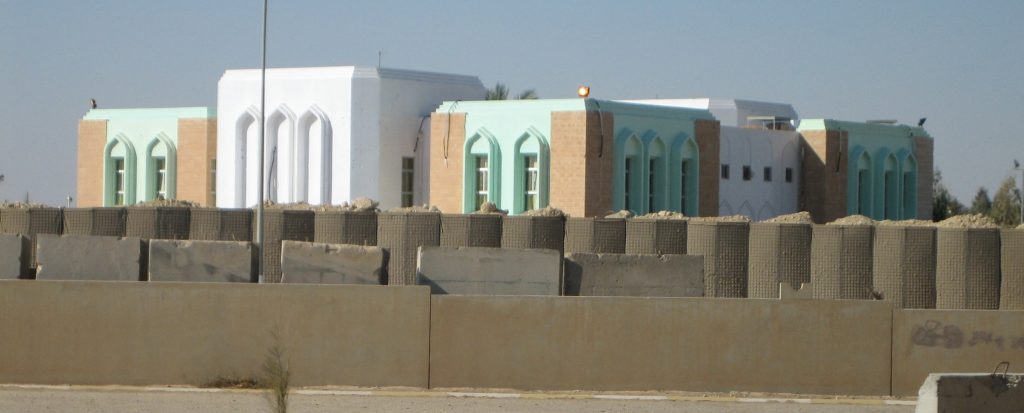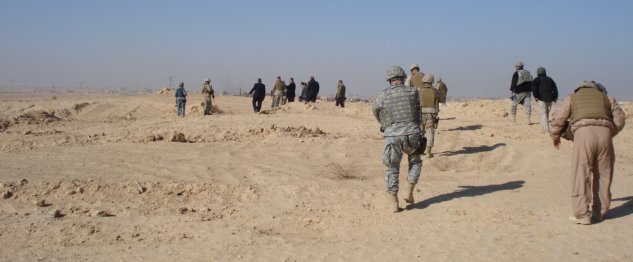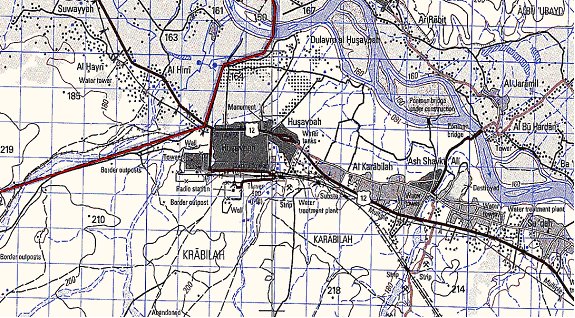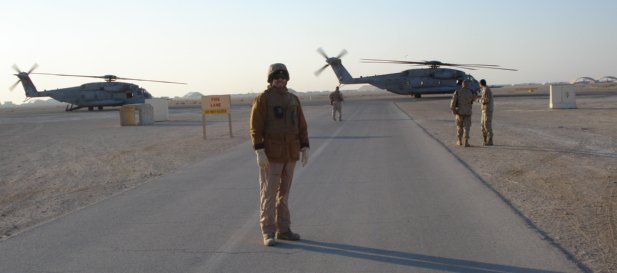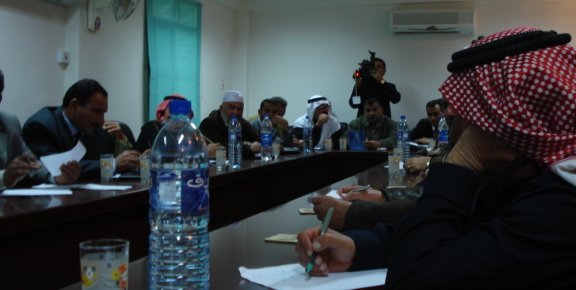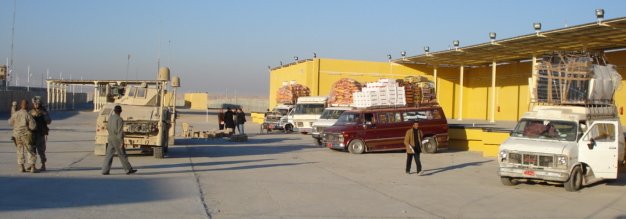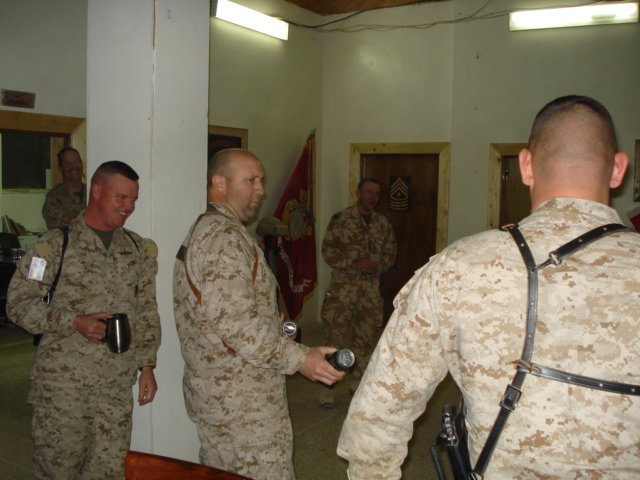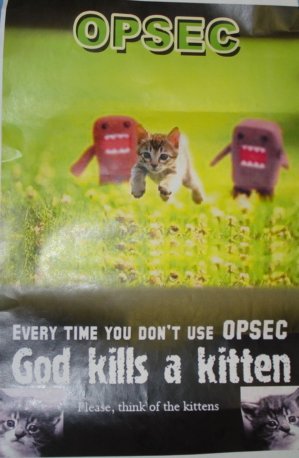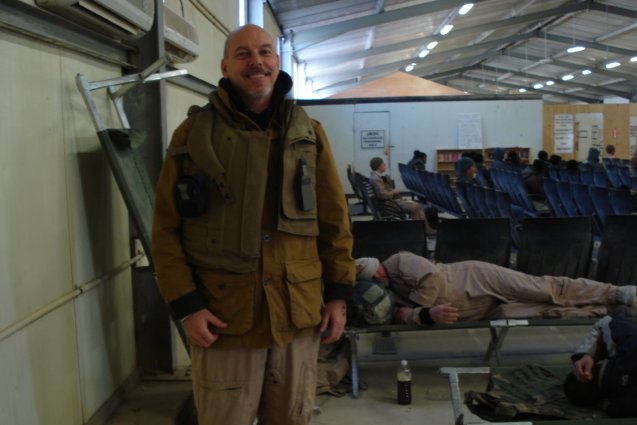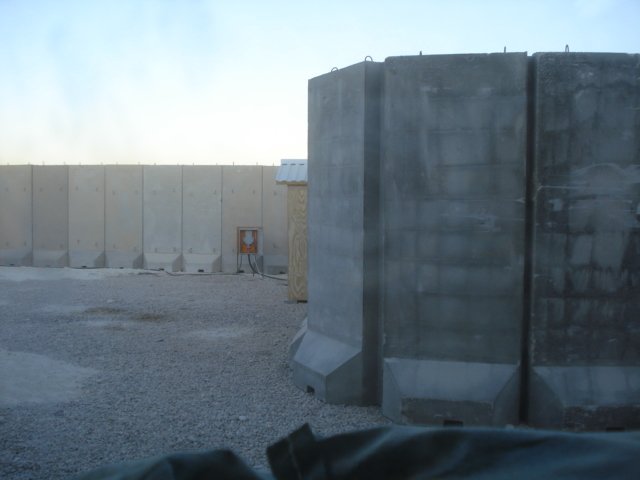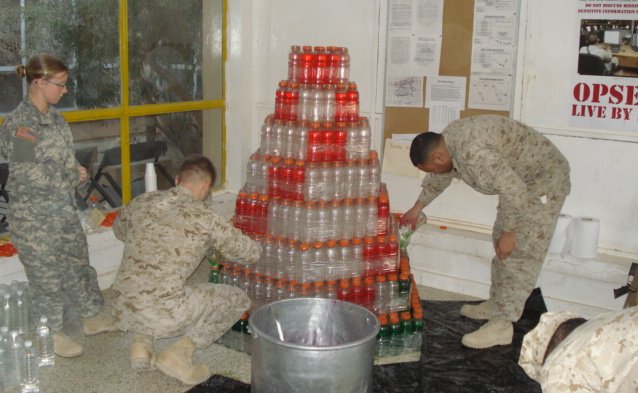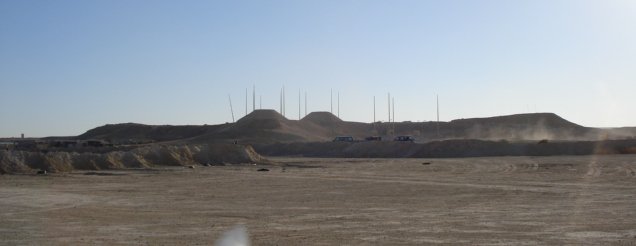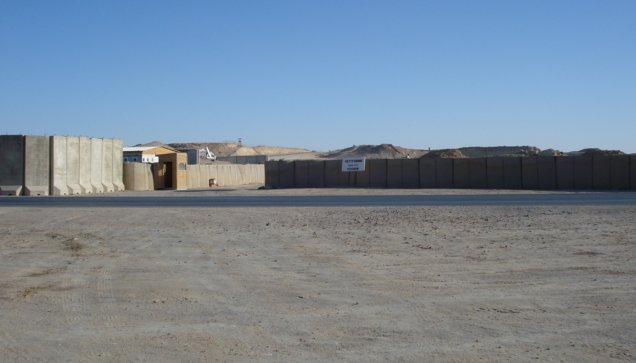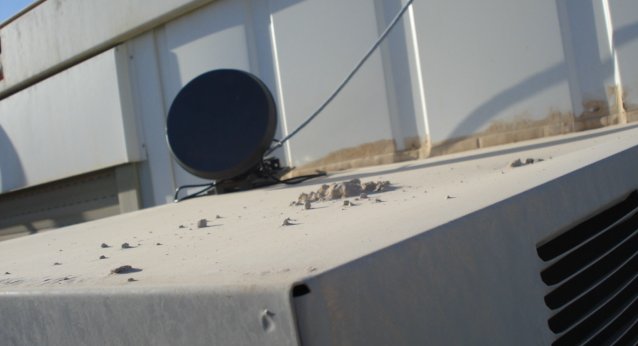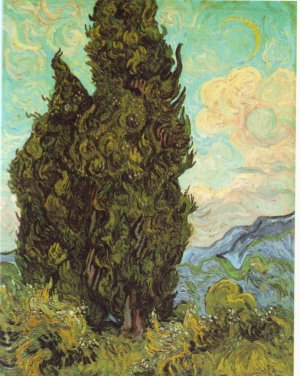I have been accumulating short notes but none are enough for a post, so I have glommed them all together in no particular order.
Plexiglas Beats Sandbags
I have Plexiglas in my windows. Everybody else has sand bags. I did too, but once when I was standing near my window some of the sandbags spontaneously fell down, bathing my office in natural light. The Marines thought it was odd that the sandbags fell down only in front of my windows and they piled them back up. I felt like the guy in the “Cask of Amontillado” watching out the window while the sandbags piled higher. The colonel allowed that if natural light was so important to me, I could have Plexiglas. Now I do. The view is not spectacular (as you can see in the photo), but the windows are above me and when I look up I can see the sky. I like that.
O Tannenbaum, o Tannenbaum, Wie grün sind deine Bottles
The picture speaks for itself. In some places they use beer bottles, some of which come naturally in green. In this heaven, however, there is no beer. They use Gatorade bottles filled with colored water.
Tatooine
That is the desolate planet where Luke Skywalker lives, or maybe it is Al Asad.
Gettysburg Can City
I just think the name if funny. It sits across from Lima Tent City. They actually are cities where people live (cf Tatooine above) You probably cannot tell from the picture, but that bunch of concrete on the left is Ripper Mall. We have a laundry, little PX and telephone calling center. Parking is free and always available. That “parking lot” you see in the front is not paved, BTW. The desert can be as hard as pavement and is sometimes easier to drive next to than on a road.
NPR Worldwide
I recently got Worldspace Satellite Radio. The antenna is in the picture. It gets very good reception of NPR, BBC, CNN radio etc. I really missed NPR. With Worldspace, I can listen to “Morning Edition” in the afternoon and “All Things Considered” & “Talk of the Nation” before bed. I still download “Dianne Rehm” weekly news roundup onto my I-Pod for time shifting. Now that I also have a TV with AFN, I can watch the “News Hour with Jim Lehrer” just before breakfast. I was worried that I would become uniformed during my sojourn in the desert. Now my only problem is becoming misinformed.
Minor Ailments
My ears are still ringing from the helicopter ride I described in the post a few days ago. When I sleep on my left ear, it does nearly deaf. I have to tug on it a few times to unlplug it. The trend seems good, however. Persistent dust makes for dry eyes and throats. I am not fond of dust. I read that some Egyptian mummies have symptoms of a sort of black lung disease caused by the dust there. I will not be in the desert long enough to suffer it, but this clearly is not a healthy place to live. The adjective phrase “God forsaken” leaps to mind when looking around most of Al Anbar, at least when you get a short distance away from the Euphrates. You get beautiful lush places across from lots of nothing – a strange blend of heaven and hell.
Goats, Grass & Deserts
Dennis has hopes for a kind of wildlife restoration corridor. I described his grand plan in an earlier post. Goats & sheep are a big impediment. These beasts are very picturesque, but they are desert makers. The land here is arid, but it is barren because of the works of man and his sheep & goats. They eat everything down to and including roots. Where there is rain enough or where pastures are properly managed, this is okay. Neither of these conditions applies in Iraq. The land will not recover until and unless the goats & sheep are controlled. Since this is a problem 4000 years in the making, I do not expect too much. We will try an “ink blot” strategy of protecting small areas as we can and hoping they will expand. This may be the triumph of hope over experience, but even if the sound management does not spread, at least we will have helped some restoration.
Small Victories
In the small victories category, we have identified a source of “gopher wood”. This has nothing to do with the small rodent pests. Rather it is a type of common Mediterranean cypress that grows 25 meters tall and has very durable wood. The story is that Noah used it to construct his Ark. I don’t know about that. What I do know is this cypress was part of the original forest on the upper Euphrates. We plan to give the little trees out when we visit towns and villages. If they thrived once, I hope they can thrive again, even if the soil is a bit depleted because of bad farming practices and goats.
The picture is Van Gogh. The real trees do not look so menacing. Van Gogh had a different point of view. BTW – he had more trouble with his left ear than I do and he wasn’t even in a helicopter.
We have achieved a few other prosaic but important successes that should clear the way for a more effective operation. A team member returned from Baghdad with funds to pay for dozens of QRF projects. We also learned that we will no longer have to send a team member down on the four day trip to fetch funds; Fed Ex will do the job for us. We are also in line to get another team member who help us with business development, something badly needed in western Anbar. As peace returns, prosperity will follow faster if we can help develop local business. Finally, our new bicultural specialist, an American citizen born in Iraq, has developed a plan to help us recruit LES in our outlying districts. We have been planning this for some time, but it is good to get something – literally – on paper with an Arabic heading. Fox News spent a week in our AO and produced several positive stories about western Anbar and about RCT 2. I have video clips which I can share with anyone who wants to see them.
